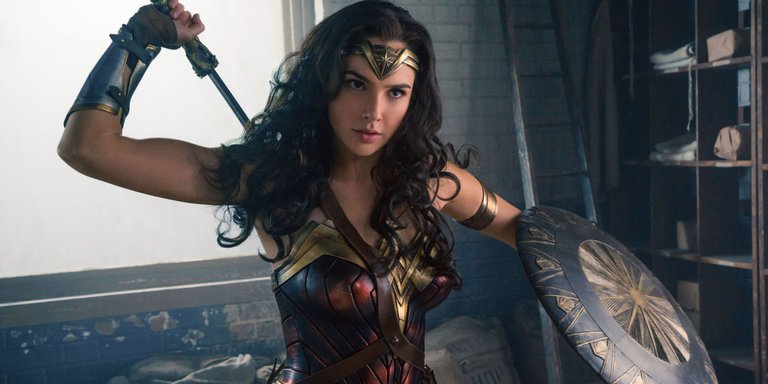
Wonder Woman offers what no other superhero can: an essentially female-power fantasy. Close your eyes and imagine an island with achingly gorgeous vistas in which a diverse group of intelligent, strong women have created an immensely more advanced society. No men. No sexism. No capitalist burden to perform that leaves women, especially women of color, vulnerable. At its best, Wonder Woman’s origin is a bold, feminist-minded refutation of the masculine, hyperindividualistic nature of her superhero peers. That it has been heavily criticized, reframed, and rewritten so often isn’t a mark of its failure, but the failure of DC Comics, and perhaps American culture as a whole, to understand and respect female-power fantasies on a larger scale.
Due to the fact that she’s so intrinsically tied to the feminist movement, Wonder Woman is also often burdened with having to represent all facets of womanhood in ways other female superheroes, like Black Widow, Storm, and Captain Marvel, have not, which has created a more muddled sense of who she is. Charting the tangled lineage of Wonder Woman’s origin is to chart the history of American feminism itself and how female power is negotiated in a world that abhors it. At the beginning of her history, Wonder Woman carried the echo of the suffragette movement and first-wave feminism. The way her mythos reflected ongoing debates about womanhood only continued from there.
One of the most fascinating aspects in the wake of Wonder Woman release is the criticism, positive and negative, that demonstrates the unique burden the character faces in regards to feminist expectations. Her politics are so baked into her origin that she’s expected to be all things to all women. A recent Slate essay, “I Wish Wonder Woman Were As Feminist As It Thinks It Is,” demerits other critics for their emotional connection to the recent film. A Wired piece titled “Wonder Woman Overcame Her Origin to Become a Feminist Icon” misconstrues aspects of her story. Throughout her history, Wonder Woman has been either too feminist or not feminist enough. She’s either a wonderful step forward for intersectional portrayals of womanhood or a film that continues the obsession with exalting white womanhood. She’s either a BDSM-tinged pinup or a glorious example of female heroism. No one character and mythos could ever live up to such stringent expectations. These arguments have raged about the character and her origins long before Gal Gadot ever wielded her iconic golden lasso. That Wonder Woman has finally gotten to star in her own live-action film just as the conversations around female power and intersectionality have hit a fever pitch is not surprising to me. The character has always been a vehicle for such discussions, whether it be how she was depowered in the late 1960s, much to the chagrin of [Gloria] Steinem, or her 1987 revamp, which gave the Amazons a backstory that echoed ongoing conversations about sexual violence happening within the second-wave feminist movement.
I think that Captain Marvel during her first days as Ms. Marvel was created in the image of Wonder Woman. Marvel really wanted to created a cultural icon, and failed. The visual cues and literal references in her first few issues are clear.
It sucks that because she is the first she is tied down like this to feminism, and because there are so many different facet of feminism no one can be happy with her. But her creator did this intentionally and now no writer of hers can escape it.